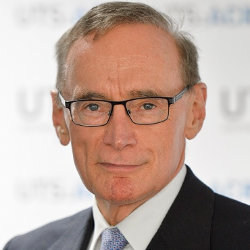How Australia's climate policy fell victim to the conservatives (SMH Sep 11, 2020)
September 13, 2020
It took one lunch with George W. Bush in 2001 for John Howard to agree to dropping ratification of Kyoto, without a word to his ministers. We became the president’s closest friend in resisting climate change.
Fast forward two decades and on climate Australia seems closer to the Saudis and Brazil and, yes, to Donald Trump than to the Europeans or Japan. Or Joe Biden.
Marian Wilkinson’s book is a forensically researched account of how the clever country found climate policy too hard and collapsed into being laggard and sceptic, even as its land mass became more prone to fires and drought and its reef struggled with mass bleaching caused by heating oceans.
There is no one villain in her icily objective narrative but US influence in our politics is a big factor, although if Biden is elected he might edge Canberra away from more gas and to net zero emissions by 2050.
But attacking the science of climate change is an American invention, unknown in Europe and Japan, its maverick scientists funded by ExxonMobil and the conservative billionaire Koch brothers and unrelentingly pushed by News Corp.
Wilkinson details how like a COVID carrier with full viral load of the heresy then Liberal Senator Cory Bernardi brought it home and unleashed it in conservative politics.
She tells how the senator had even completed a training course in an organisation called The Leadership Institute in Virginia that prided itself on producing ‘‘freedom fighters’’ to combat the radical left and learn about voter databases and online campaigns.
Mobilising conservative opinion over climate with these techniques, his role was crucial in striking down Malcolm Turnbull as party leader in 2009.
In Australia this rank and file mobilisation found a backer in Hugh Morgan. Here, a Noam Chomsky or university Marxist could hardly find a richer case study. Morgan, out of the resource sector, headed the Cormack Foundation, which funded the Liberal Party, and the Institute for Public Affairs, which furnished its policies. Add the coal-burning emitters and watch the juices flow.
As a result, a happy bipartisan moment in 2009 when Australia might have begun to price carbon was crushed by a denialism created in the hotbed conspiratorial politics of the US and shaped by the Liberal Party’s right wing.
The same forces had nurtured George W. Bush. They had guided the simpleton president to his decision two months after coming to power to pull the US out of Kyoto and attack mainstream climate science. The US was out on its own, at odds with Britain, the EU and Japan. All the more striking was Prime Minister Howard, guided by his ambassador Michael Thawley, loyally joining Bush as the only other leader in the world to reject the global climate agreement.
In Tony Abbott the big emitters found a defiant contrarian unabashed about working with Gina Reinhart and Clive Palmer with their up-front interest in developing the Galilee Basin. He was at home at an IPA dinner placed alongside Rupert Murdoch, Cardinal George Pell, Gina Reinhart and Hugh Morgan. He gloried in Tea Party-style rallies in front of parliament.
‘‘By May 2011,’’ Wilkinson writes. ‘‘The Liberal Party was riding the tiger of right-wing populism, hoping to destroy the emissions trading scheme and bring down the Gillard government. It was the same model the Republicans were embracing in Washington against the Democrats.’’
Abbott was so fiercely opposed to climate action he could contemplate being at odds with a progressive US president. Wilkinson’s research confirms the irritation Obama felt with Abbott’s agenda when during the Brisbane G20 he adlibbed a lament for the Great Barrier Reef.
Australians now young will want to know why this generation didn’t expedite a shift from the old fuels while data steadily piled up on melting permafrost, rising atmospheric temperature and reduction in Arctic Sea ice. And the drying out of our coral, to which Wilkinson devotes three pacey chapters. The best hope now is that investors are ignoring governments such as Trump’s and withdrawing from thermal coal and, increasingly, gas because of the economic risk of funding carbon in a warming world.
Wilkinson, an experienced investigative reporter with the ABC and Fairfax, lets the facts speak for themselves, nowhere more than recounting the dogged grassroots campaigning of Bernardi or the jaunty mischief of Abbott. It is contemporary history at its best, a rough draft of how we got to where we are that, I suspect, historians 100 years off will be hard pressed to improve on.
